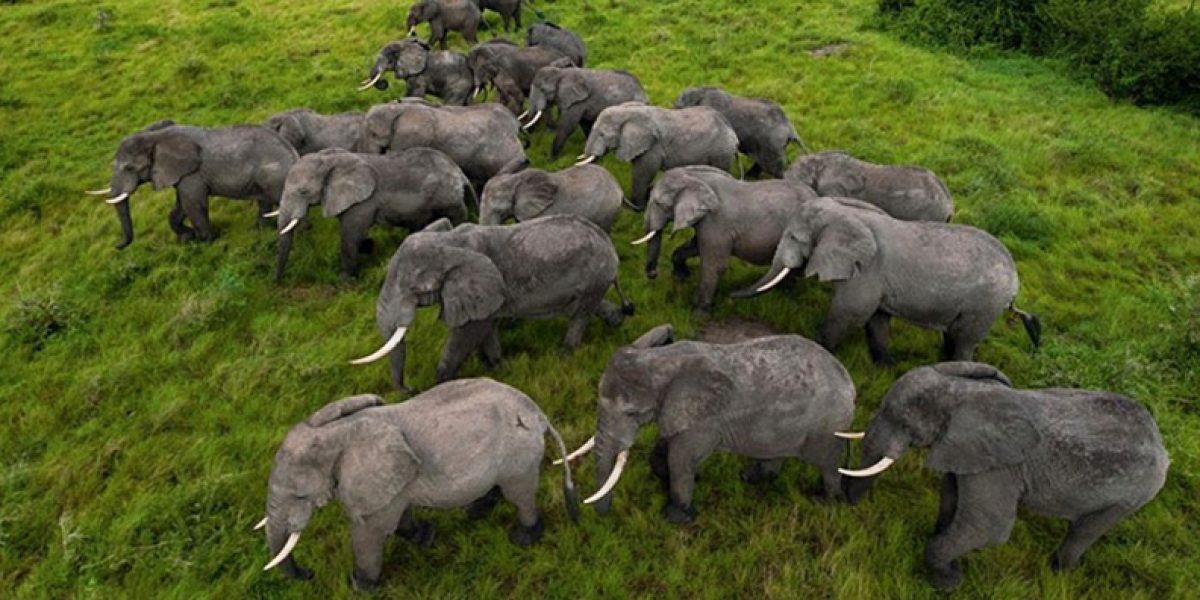Elephants are part of our global heritage that should be stewarded for future generations, but they are not to be fenced off in “fortress conservation” efforts; we must find ways of co-existing with elephants in a way that serves communities in Africa – and the elephants themselves.
One way to mitigate the risk elephants are facing due to demand for their ivory is to reduce that demand – such campaigns are crucial in the fight against poaching, and domestic ivory trade bans can complement these campaigns.
At the South African Institute of International Affairs, we promoted the indefinite imposition of a domestic ivory trade ban in the run-up to the 17th Conference of the Parties (CoP17) of the Convention on International Trade in Endangered Species of Wild Fauna and Flora (CITES) 2016. Along with a number of other organizations, we appear to have been successful at convincing the Chinese authorities to recognize that a domestic ban is necessary.
Bans like this make demand reduction campaigns credible, but they are only effective under certain conditions. In a new paper in Ecological Economics, we find that in order for the Chinese domestic ivory trade banto be effective in its role against elephant poaching in Africa, the authorities have to state explicitly that the ban will be indefinite and wide-ranging.
Triggering a fire sale
I grew up across southern Africa, and I never expected that my children’s children might not see elephants in the wild. In the course of conducting research into natural resource governance, I started to see the devastation of elephants through poaching, habitat contraction and fragmentation, and other factors.
Because the ivory trade is a predominantly clandestine activity, little reliable data is available to help us ascertain how prices are formed. However, there is excellent seizure data available, and from that one can infer how much ivory might be entering a country. Ivory trade expert Dr. Dan Stiles suggests that a huge volume of raw, illegal ivory entering China was being stockpiled and not sold.
In December 2016, China committed to execute a domestic ivory trade ban by the end of 2017. However, it did not explicitly indicate how long the ban would be in place for. With the potential stockpiling in mind, we proposed to use game theory to understand what the optimal strategic responses from the authorities might be.
In our study, we designed a simple non-cooperative game between Chinese authorities and ivory speculators to assess the best equilibrium outcome for elephants. Within the broader game, there are two sub-games – the first is between speculators and poachers. An off-the-shelf model shows that speculators will bank on elephant extinction and poach all the living stock now unless they believe that a ban will severely limit their business in the long run, in which case they would attempt to dump their stock now (the preferred option for elephant survival).
The second sub-game is between private speculators, who hold small amounts of ivory. If they believe that they will not be able to sell their stock (and thus beat inflation) for a decent price, they might decide to sell immediately. This could trigger a fire sale, where no private speculator wants to be the last to sell worthless stock. Seeing this, wholesale speculators might respond by dumping their stock in turn. Ultimately, end consumer behavior matters for influencing how speculators strategize. If demand is shifting downwards, it makes sense for private speculators to sell now.
Disincentivising poaching
We concluded that the ban will only be effective if it is indefinite. This is because wholesale speculators might have an incentive to hoard ivory now until some discreet point in the future when the ban is lifted. If, for instance, they expect the ban to be lifted ten years from now, they would poach living stock now in anticipation of earning future monopoly rents when the market re-opens.
If, however, the market was unlikely to ever re-open, they would have to either conduct all their sales activity illegally, or they could dump stock now. The latter would be ideal for elephant conservation, as it would drive prices downward, which, despite an initial potential increase in quantity demanded, should disincentivize poaching.
One the basis of our findings, we propose that the Chinese authorities should make it explicit that the ban is indefinite, and that they take steps to indicate, monitor and communicate progress. By doing this, they will signal credibility, preventing speculators from starting to believe that the regulators are not serious about shutting down the market.








